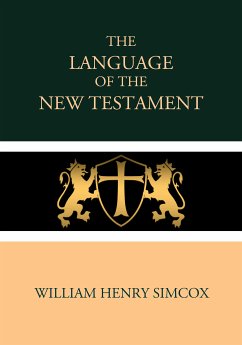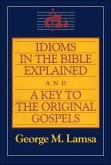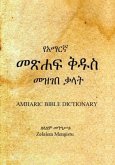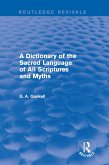Moreover, while it is true that we can talk about New Testament Greek, as one form of the language which has a real existence, and while the Greek Testament, or even the whole Greek Bible, forms but a small body of literature, it is true at the same time that every biblical writer-at least every New Testament writer-has a style of his own, and often grammatical peculiarities of his own, so that the works of one biblical writer may differ from the rest quite as much as from those of secular writers. The study of these individualities brings us, more perhaps than the study of the Hellenistic language generally, into contact with the minds of the evangelical writers, and so gives real assistance to the comprehension of their writings. An attempt has been made to distinguish how far each writer (or each school or group of writers) shares in the special characteristics of Hellenistic or biblical Greek, how far he has marked linguistic features of his own, and thus to give the student some notion of the extent and importance of purely grammatical questions in dealing with the New Testament. It is hoped that, if he desires to pursue the study of pure grammar further, he may here find an introduction to the subject that will relieve its apparent aridity and want of interest; and that if he does not, he will gain a just notion of the amount of deference due to grammatical specialists, and will be able to judge on what questions this decision must be accepted as final, and on what questions any careful and sensible reader has a right to think for himself.
G. A. SIMCOX. September 1889.
CrossReach Publications
Dieser Download kann aus rechtlichen Gründen nur mit Rechnungsadresse in A, B, BG, CY, CZ, D, DK, EW, E, FIN, F, GR, H, IRL, I, LT, L, LR, M, NL, PL, P, R, S, SLO, SK ausgeliefert werden.









